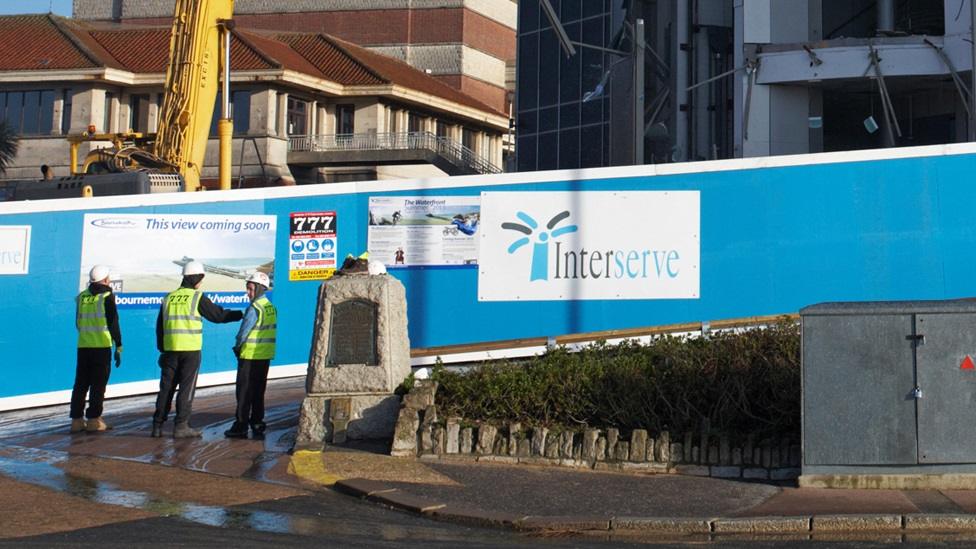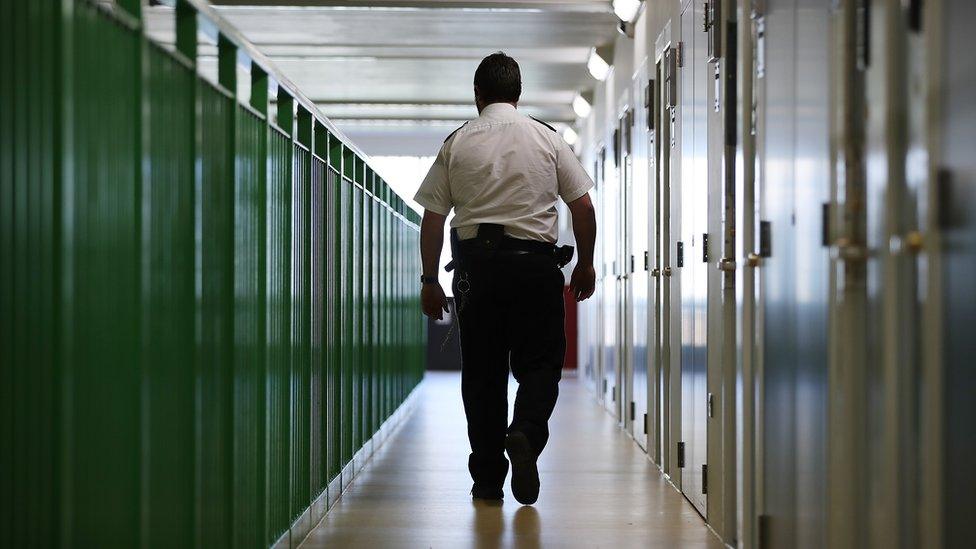Interserve shares dive on rising concerns over future
- Published

A former big shareholder in construction and facilities management company Interserve has told the BBC he is doubtful the firm can survive.
Shares hit a 30-year low on Monday, and are down a further 15% on Tuesday.
"We could be looking at another Carillion. I don't see how they can raise the £500m or so needed," he said.
However, two different sources close to the company denied the firm was close to bankruptcy and said it was set to ask new investors for more capital.
Interserve, a major UK government contractor, sells services, including probation, cleaning and healthcare, and is involved in construction projects.
The company is making more than £100m in cash and although the construction business has got a few problems, the core facilities management business is doing well, according to people who attended a recent management meeting.
One source added that the sharp falls in Interserve's share price reflected the growing realisation that existing investors will get a worse deal than those prepared to commit fresh cash.
However, the former shareholder was sceptical those funds could be secured.
"The management team and its track record is not good enough to make a case for investing new money," he said and added he could not see the necessary money being raised "unless something weird happens from left field, like government providing direct financial support".
The company is currently undergoing a three-year reorganisation called Fit for Growth, designed to simplify the business.
In a statement Interserve said the implementation of that strategy remained on track.
"The Group continues to expect a significant operating profit improvement in 2018, in line with management's expectations," it added.
Carillion went bust in January of this year after government officials told company bosses that "taxpayers cannot be expected to bail out a private sector company".
Despite being awarded big government contracts with the Ministries of Defence, Transport, Work and Pensions and Justice, the value of Interserve, which employs 25,000 people in the UK, has fallen by more than 90% in the last two years.
That has prompted direct comparisons with the spectacular demise of Carillion, which left its customers, including the government, scrambling to find alternative providers for essential public services at prisons, hospitals and schools.
Although it secured a rescue deal with lenders in March of this year, Interserve has continued to lose money - reporting a loss of £6m for the first half of this year.

Facts and figures
The company was started in 1884 by brothers Edmund and Augustus Hughes
It has a worldwide workforce of more than 75,000 - in 2000 it employed 10,000 people
In 2014, it made its biggest acquisition when it bought Initial Facilities for £250m
Contracts landed in 2018 include at Durham University and with Highways England in Hull

Projects in Derby and Glasgow to extract energy from waste are behind budget and schedule and could see the company hit with big compensation payments.
The Carillion case prompted a fierce political debate on the role of private companies in providing public services. Former executives faced angry questions over dividends paid to shareholders and bonuses paid to executives, after it became clear the company was in financial distress.
Given Interserve's number of government contracts and the painful Carillion experience, the Cabinet Office has been keeping the company under very close surveillance.
Industry experts say that will make the government more confident it can manage an orderly process if Interserve collapses, "there is absolutely no way the government will put in public money. After Carillion went bust not a single child went without lunch and not a single hospital didn't have its floor cleaned. The government has a playbook and will feel it can manage".
Given there are such divergent views on the likelihood of Interserve's survival, that preparation looks like a sensible precaution.
- Published1 February 2018
- Published17 January 2018
